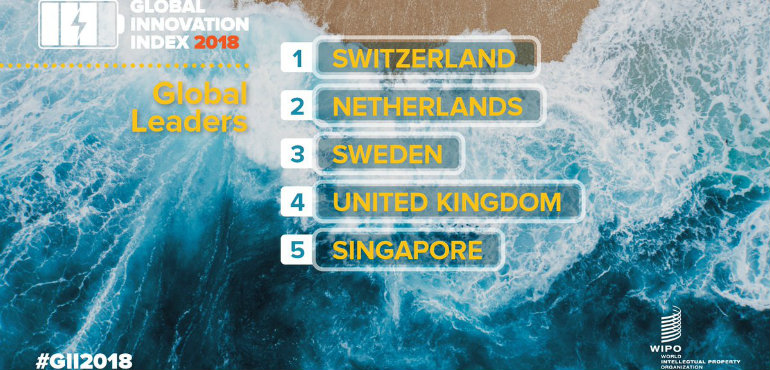German automotive industry at a crossroads
Category: Business

(Global Innovation Index, Public domain)
Global Innovation Index, prepared by Cornell University, French graduate business school INSEAD and the World Intellectual Property Organisation, is an annual analysis of country and regional innovation awareness and action, notably in the area of the latest technological developments and attitudes. In the latest rankings, Estonia enters at 24th place, Latvia 34th and Lithuania 40th. In creative output, Latvia scored 23rd place and 24th in market sophistication, 31st in institutional and 36th in business sophistication, 45th in infrastructure, 51st in knowledge and 53rd in human capital and research.
Estonia achieved 22nd place in institutions, 36th in human capital, 21st in infrastructure, 35th in market sophistication, 30th in business sophistication, 29th in knowledge and technology outputs, 5th in creative outputs.
Lithuania ranked 40th overall, 38th in institutions, 46th in human capital, 32nd in infrastructure, 50th in market sophistication, 35th in business sophistication, 58th in knowledge and technology outputs, and 33rd in creative outputs.
Poland came in 39th overall, 36th in institutions, 44th in human capital, 41st in infrastructure, 57th in market sophistication, 41st in business sophistication, 44th in knowledge and technology, and 24th in creative outputs.
Top came Switzerland followed by Netherlands, Sweden, UK, Singapore, US, Finland Denmark, Germany and Ireland. Bottom places went to Yemen, Togo and Burkina Fasso.
Unsurprisingly perhaps, North America tops the regional list with 57 points , Europe comes second with 47 points and South East Asia , East Asia and Oceana third with 44 points.
The report is optimistic about the future prospects for Research and Development (R&D) expenditures and innovation-led growth. After an uneven decade, the challenge for the global economy is to reach a “comfortable cruising speed”. Corporate expenditure on R&D is still lower than before the global financial crisis of 2008 and there are some risks lying ahead. But Innovation and R&D is a “serious policy ambition” and in 2016 worldwide, R&D spending rose by 3 per cent. Intellectual property filings, mainly driven by China, have reached record levels. The authors of the report are positive about R&D expenditures increasing in middle income economies, to close the R&D gap, but they may be overly optimistic about the level of future global co-operation.
Europe is catching up with North America: 15 of the top 25 economies are from Europe and most from the European Union. Although the region as a whole scores well, there are discrepancies between individual countries — some are in the top 10 while others are in the 30s and 40s. The report states that these differences are persistent. Strong innovation inputs contrast with lower performance on R&D or innovation outputs. The authors also suggest that the level of entrepreneurial activity may be less than desired. Nonetheless, recent years have seen a renewed start-up phenomenon in European capitals
Smaller economies are always at a disadvantage when placed against large economies and upper-middle ones: most science and technology clusters are still in the US which has 26, China with 16, or Germany with 8. Although when placed in the world ranking, the Baltic and Polish position is, in absolute terms, a good one, but when set against the European leaders such as Germany or the United Kingdom it reflects the gap.


